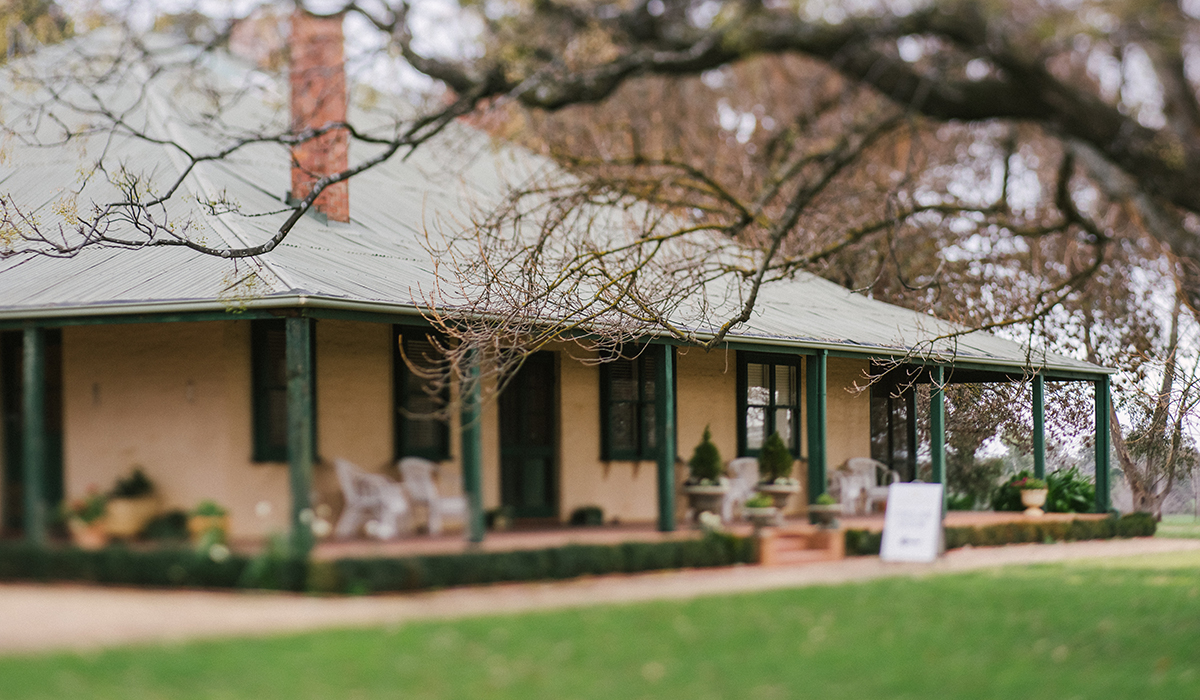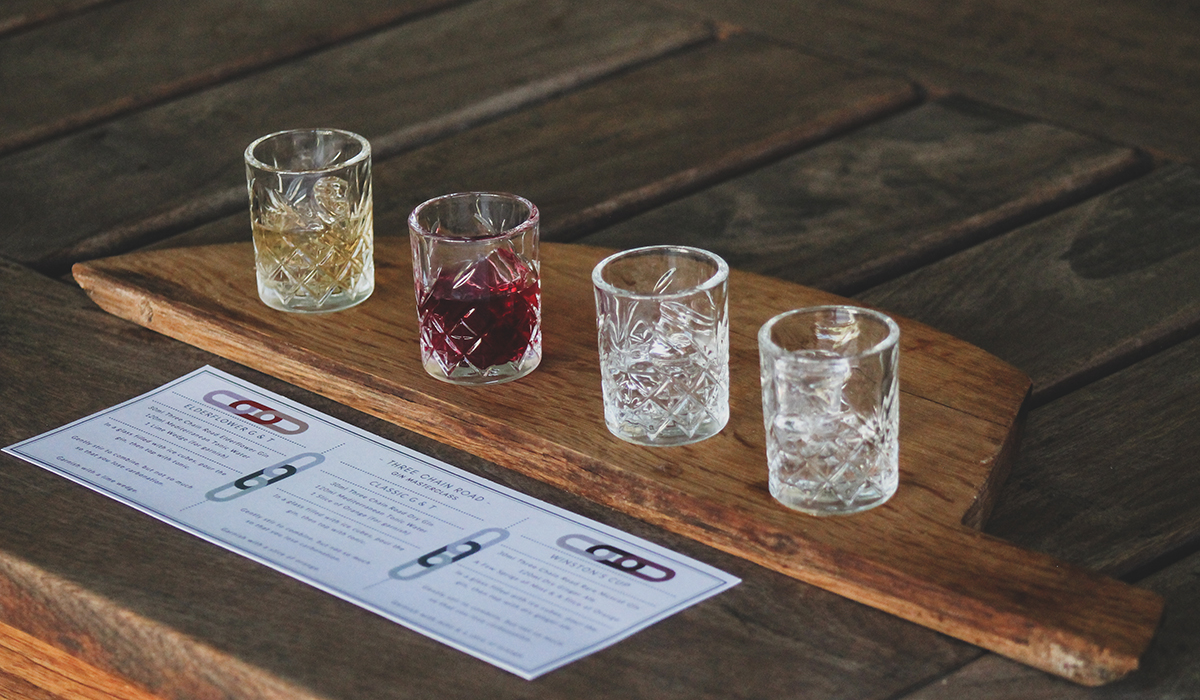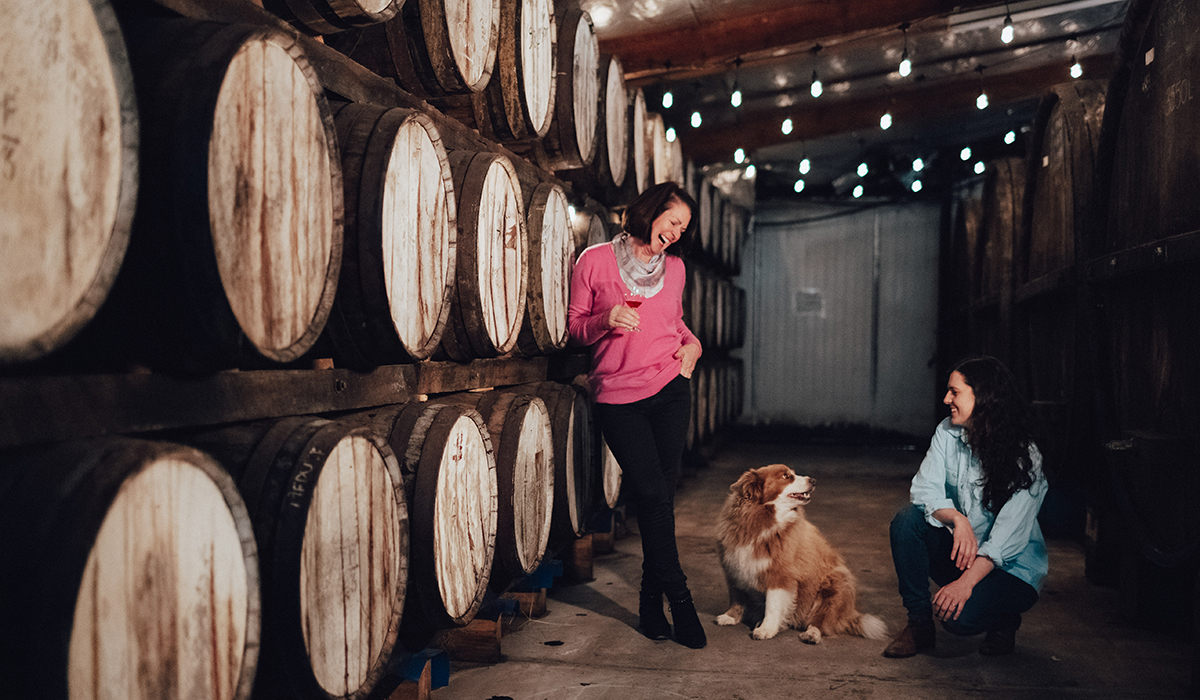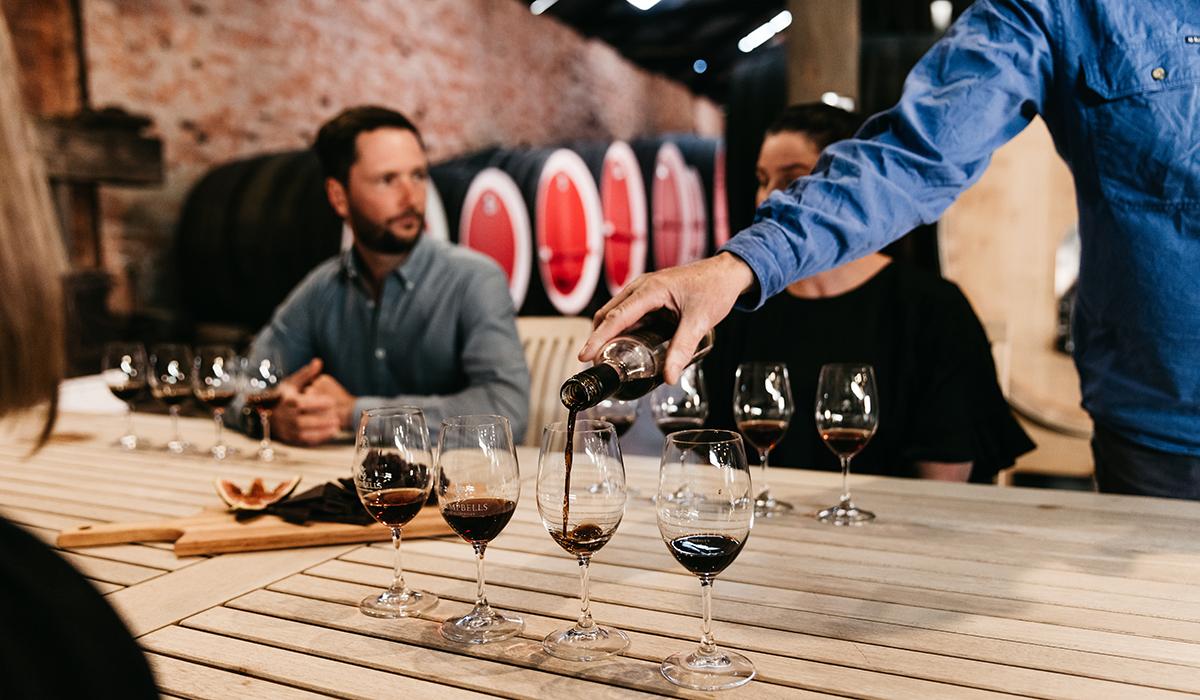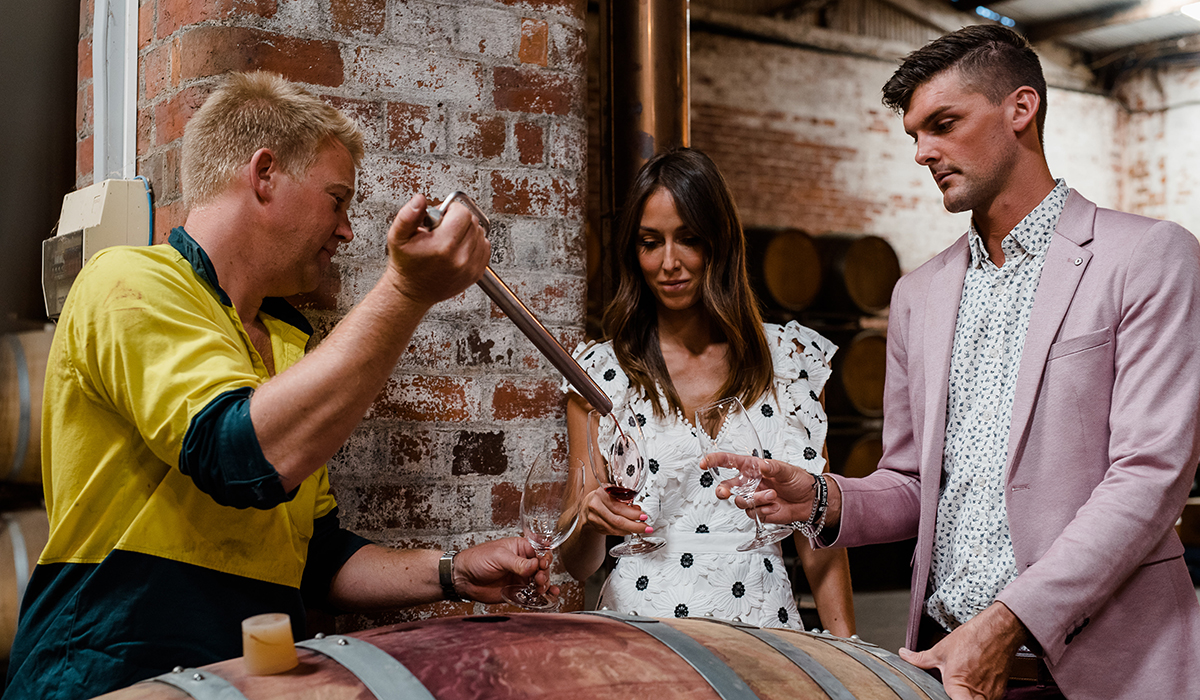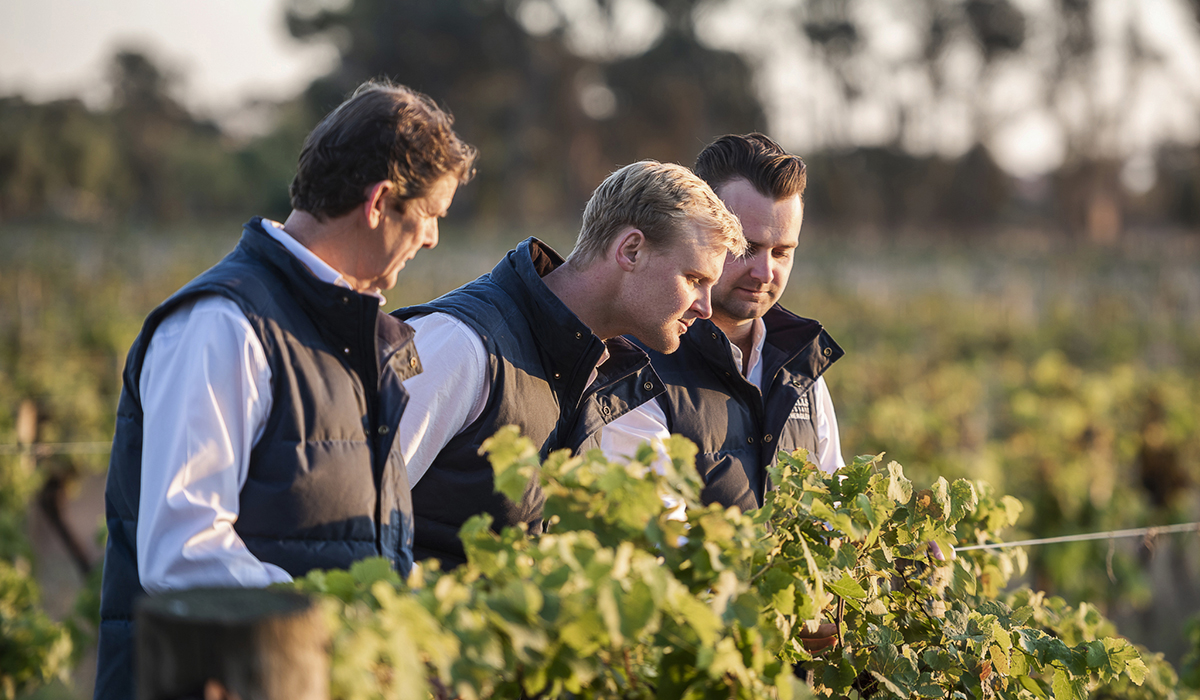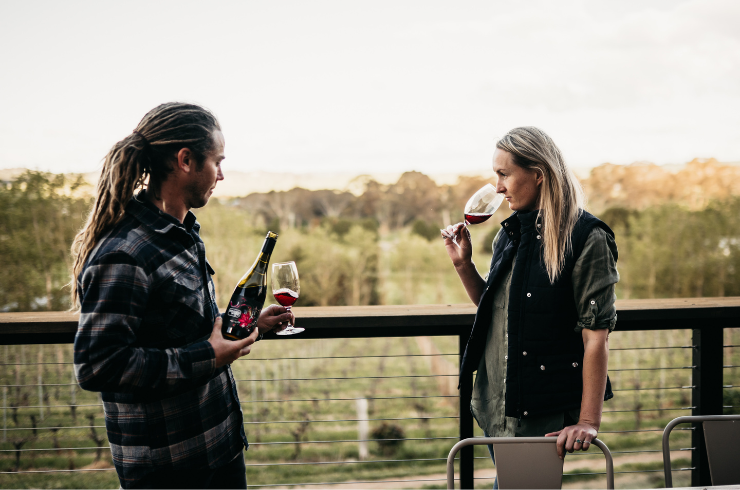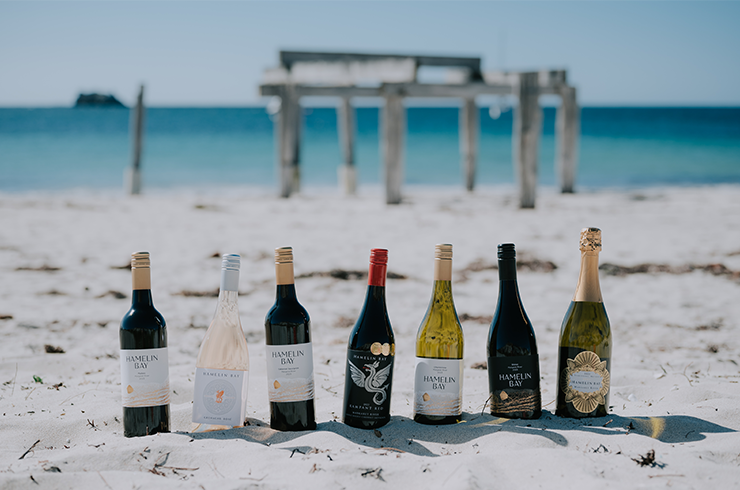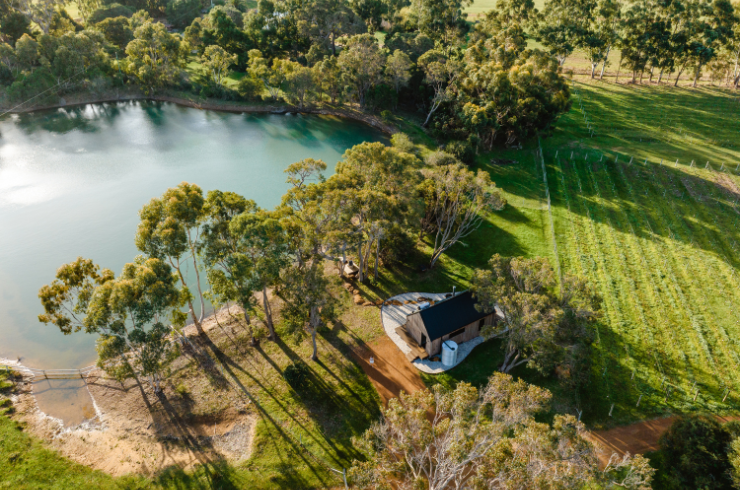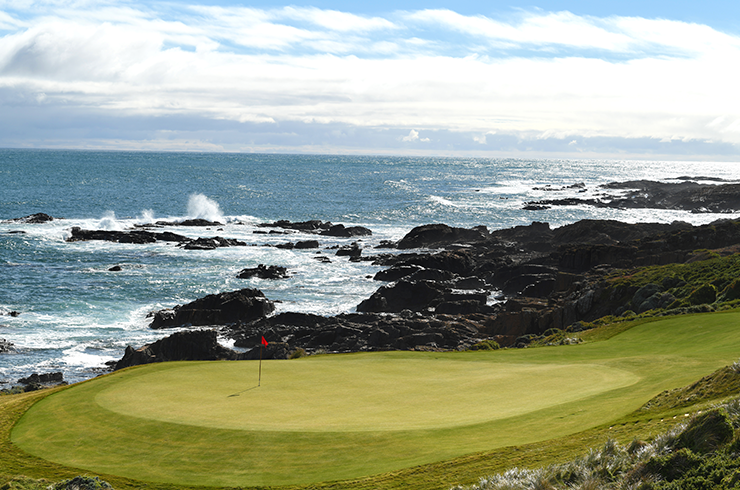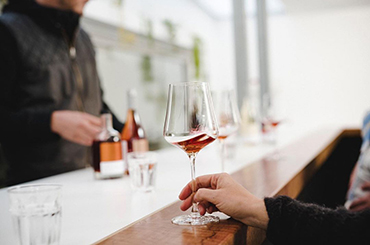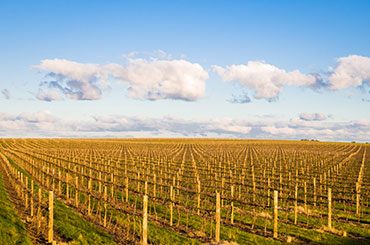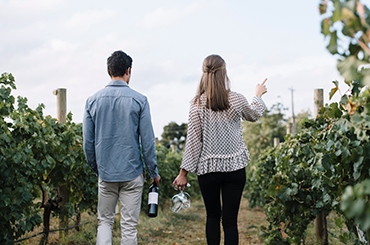While Rutherglen is one of Australia’s best examples of long-established family wineries, the next generation must balance tradition with new ways of thinking to stay relevant in a rapidly evolving market.
“Rutherglen is perceived as a region well known and highly respected for its iconic full-bodied reds, as well as its vast history in fortified wines and ports,” says Alex Buller from Andrew Buller Wines. “I think the challenge now is to highlight the diversity of the region and its ability to also produce outstanding white and sparkling wines.”
The cellar door at Andrew Buller Wines.
From muscat gin to sparkling tempranillo, dry white muscat and interesting blends of unusual varieties, Rutherglen has more to offer than just fortifieds and bold durifs.
At Buller Wines, Michael Murtagh and Dave Whyte have a fresh perspective on the region’s age-old association with muscat. “We’re bringing a new approach to the way people consume our fortified wines by incorporating them into cocktails,” the duo explains. From blending tawny port with coffee – a take on the espresso martini – to partnering it with orange and tonic, Michael and Dave are mixing it up. “Showing fortifieds can be consumed in ways other than straight up will hopefully increase the amount of people that try these amazing wines.”
Tastings at Buller Wines go beyond the usual regional wine styles.
For Stanton and Killeen, alternate varietals became a key focus in the early ’90s when they opted for Portuguese plantings over more traditional offerings, explains Natasha Killeen. “My dad, Chris, planted red Portuguese varieties to develop his own Australian take on Vintage Fortified [previously Vintage Port] by blending them with shiraz and durif,” she says. “The interest in alternative varieties is strong, with people recognising we can produce some amazing wines here, and many wineries are now offering engaging experiences that showcase innovation and a tangible connection to the region’s rich history.”
Wendy and Natasha Killeen at their family's winery Stanton & Killeen.
A stellar example of this is found at Campbells, where visitors can blend their own muscat from barrels spanning five generations. “Muscat is extremely important to the region,” says Jane Campbell. “It’s the only wine style we can own, and with the establishment of the Muscat Mile, we can really bring to life the story of muscat and how to enjoy it.”
Get to know the region's renowned fortifieds at Campbells.
But it’s not just about the wine for some of the incoming cohort. Sustainable viticulture is increasing across the region, with many seeing it as their ongoing responsibility to protect the soil on which generations before them farmed.
“Rutherglen has stepped into the future,” says Rowly Milhinch of Scion. “Many of us are working toward achieving sustainable viticultural certification, we are investing in renewable energy and other on-farm technologies and continue to evolve our winemaking identity to broaden the awareness of our wines.”
This is echoed by Joel Chambers of Lake Moodemere Estate, the first Certified Sustainable vineyard in North East Victoria. “Rutherglen is a forward- thinking region; we’re constantly evaluating and evolving,” he says. “We’re industry leaders in multiple fields, embracing new technology. So, while we may be quiet achievers, the time has come for us to be noticed.” Joel is mentoring fellow wineries with the aim of seeing the entire region follow suit with the certification.
Amid the new and exciting, generational winemaking is what sets Rutherglen apart from many other Australian regions, with lineage dating back to the 1850s.
“All Rutherglen’s wineries are family owned, and the multi-generational winemaking families feel proud and also fortunate for the opportunity to continue this into the future,” says Nick Brown of All Saints Estate. “We have amazing old vineyards and wines that have been nurtured for decades and, in some cases, for over a century.”
Nick Brown of All Saints Estate is championing the heritage of his family and region.
The next generation carries these legacies with pride. “It’s an amazing privilege to have this opportunity, but I also feel self-imposed pressure to get it right and the responsibility to continue the family legacy,” explains Natasha Killeen.
The team at Olive Hills Estate.
This is echoed by Harry Perry of Olive Hills Estate, who is hoping to build on his father’s legacy and continue experimenting with unusual grape varieties grown on their drylands vineyard. “Dad has a loyal following, and I hope I can continue to meet their expectations,” he says. “I also hope my children and their children continue this winemaking journey.”
Have you caught our two podcast episodes about Rutherglen? Tune in here.
Top image: Linlithgow Vineyard, Scion.
